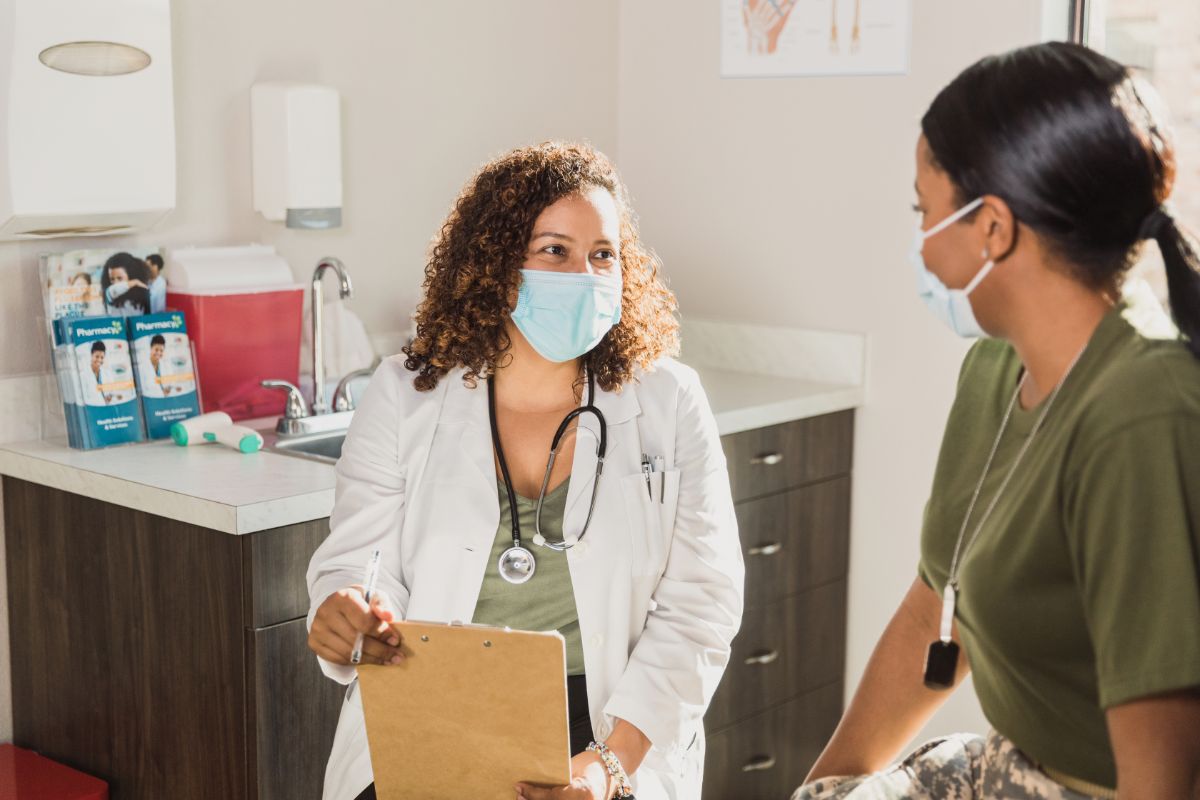If you dread scheduling an appointment for your well-woman exam, you’re certainly not alone! Ask any woman, and she’ll likely tell you that annual gynecological exams are one of her least favorite things. However, these visits are an essential part of maintaining your overall health and nothing to be worried about or embarrassed by. Understanding why these routine exams are so important and what you can expect from them can help relieve some of the associated anxiety. Keep reading to learn more!
Is this your first annual appointment?
Most women should begin receiving annual gynecology exams by the age of 21 or 3 years after they become sexually active, but if you’re experiencing any gynecological symptoms before this, you should schedule an exam sooner. These symptoms can include irregularities in your menstrual cycle, unusual or severe vaginal or pelvic pain, abnormal vaginal bleeding or discharge, swelling, tenderness, sores, lumps, itching, or unusual changes in your breasts.
When scheduling your appointment, it’s helpful to let our team know if this is your first gynecological exam. We know that many women are nervous about these visits and will do everything we can to make this a stress-free experience for you. Some women prefer to have a family member or friend accompany them to their annual appointments, while others feel more comfortable with an additional nurse chaperone present. We encourage you to take advantage of either of these options if it helps you relax!
You should not douche, use vaginal creams, or have sexual intercourse for 24 hours before your exam. If you start your period, you should reschedule. Outside of these preparations, there’s not much you need to do before your appointment.
What does an annual appointment include?
When you visit us for an annual appointment, the physical portion of the exam will generally include an external and internal pelvic exam, pap smear, and breast exam. We will also ask for you to provide us with a urine sample. Here’s a closer look at each of those procedures!
The pelvic exam
A pelvic exam is usually composed of four steps: the external genital exam, the speculum exam, the pap smear test, and the bimanual exam.
The first step is changing into a dressing gown. You’ll be instructed to lie on the examining table with your legs in foot rests or on knee rests. A sheet may be draped over your legs for personal privacy. Once you’re comfortable, we’ll ask you to spread your knees apart. It’s important to be as relaxed as possible for this part. Try to breathe slowly and deeply and do not tense your muscles. This will make the exam less painful for you and more efficient for us!
During the external genital exam, your vulva and labia will be assessed for any abnormalities. This includes irritation, swelling, redness, cysts, or any visual indication of sexually transmitted diseases (STDs).
Once the external examination is complete, a sterile medical device called a speculum will be inserted into the vagina. This is generally painless but may feel a little cold. Once we have the speculum in place, it will be opened slightly to separate the walls of the vagina so we can view the cervix. You may feel some pressure or brief discomfort at this point, but staying relaxed will help. Remember to always communicate your level of comfort with our team!
With the speculum opened, we’ll be able to examine your cervix for any signs of irritation, atypical discharge, or indications of sexually transmitted disease. With the speculum still in place, we’ll continue to the pap smear test. A pap smear checks for precancerous or cancerous cells. This quick procedure feels a bit like a little pressure and involves taking a sample of your cervical cells. The cell sample is sent to a lab, where it’s carefully examined for good health. You’ll typically receive the results of this test in a week or two.
After the pap smear test, the speculum will be removed, and a bimanual exam will be performed. This involves inserting a gloved and lubricated finger into the vagina with one hand while pressing down on your abdomen with the other hand in order to check the size and location of internal organs like the uterus and ovaries. Some slight discomfort is possible, but if this pressure causes pain, be sure to let us know!
The pelvic exam is an essential part of your annual appointment and is necessary even if you aren’t experiencing any symptoms.
The breast exam
Breast exams are brief and painless. We’ll visually examine both of your breasts to see the shape, size, and texture of your skin, then manually palpate each one to check for any lumps, thickening, or discharge. These exams are one of the most important early breast cancer screenings and an important tool for good breast health.
Urine samples
You will be asked to provide a urine sample at your annual appointment. This sample is used to check for various infections and/or pregnancy, as well as being an indicator of the overall health of your kidneys.
Taking time to talk about your health
As part of your annual appointment, you’ll be asked a series of questions about your family history, current health, and sexual activity. These questions will cover your menstrual cycle, sexual activity and partners, contraception, STD prevention, pregnancies, illnesses, and surgeries. You’ll also be asked about any drug and alcohol use.
While many of these questions are pretty personal, it’s important to answer them as honestly as possible. Shyness can be a health risk! Any information you reveal in your appointment will be kept entirely confidential. This visit is also the perfect time to ask any questions you have. The more knowledgeable you are about your body, the more confidence you can have in taking good care of it!
Women’s Health Specialists: we’re here for you
Do you need to schedule your first well-woman exam? Is it time for your annual appointment? If you have any questions or concerns about an upcoming visit or would like to schedule one, click here or call our Germantown office at (901) 682-9222.


